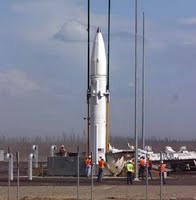As NATO member states prepare for next month’s heads-of-state summit in Chicago, the alliance faces a number of difficult decisions on a variety of issues that will determine its deterrence and defense posture moving forward. And while NATO is often stymied by internal divisions among its members, in this case the major obstacle to any bold policy shifts is disagreement with a nonmember: Russia. As a result, NATO is likely to endorse current policies, unless Russia significantly alters its negotiating position on these issues.
At the last NATO heads-of-state summit in November 2010 in Lisbon, faced with the question of how the alliance should integrate missile defenses, tactical nuclear weapons and conventional capability shortfalls into a coherent and integrated framework that would support NATO’s sometimes diverging military and diplomatic goals, the alliance did what it often does when confronted with divisive issues: It punted, instructing member states’ defense ministries to study the issues and report back.
The experts have been hard at work since then on this deterrence and defense posture review. Its results will not be unveiled until next month in Chicago, but it looks like the summit will endorse retaining the small number of U.S. nuclear weapons in Europe, declare NATO’s collective missile defense system operational and announce that the alliance will somehow strengthen its conventional capabilities despite the large defense budget cuts adopted by the various member countries.

